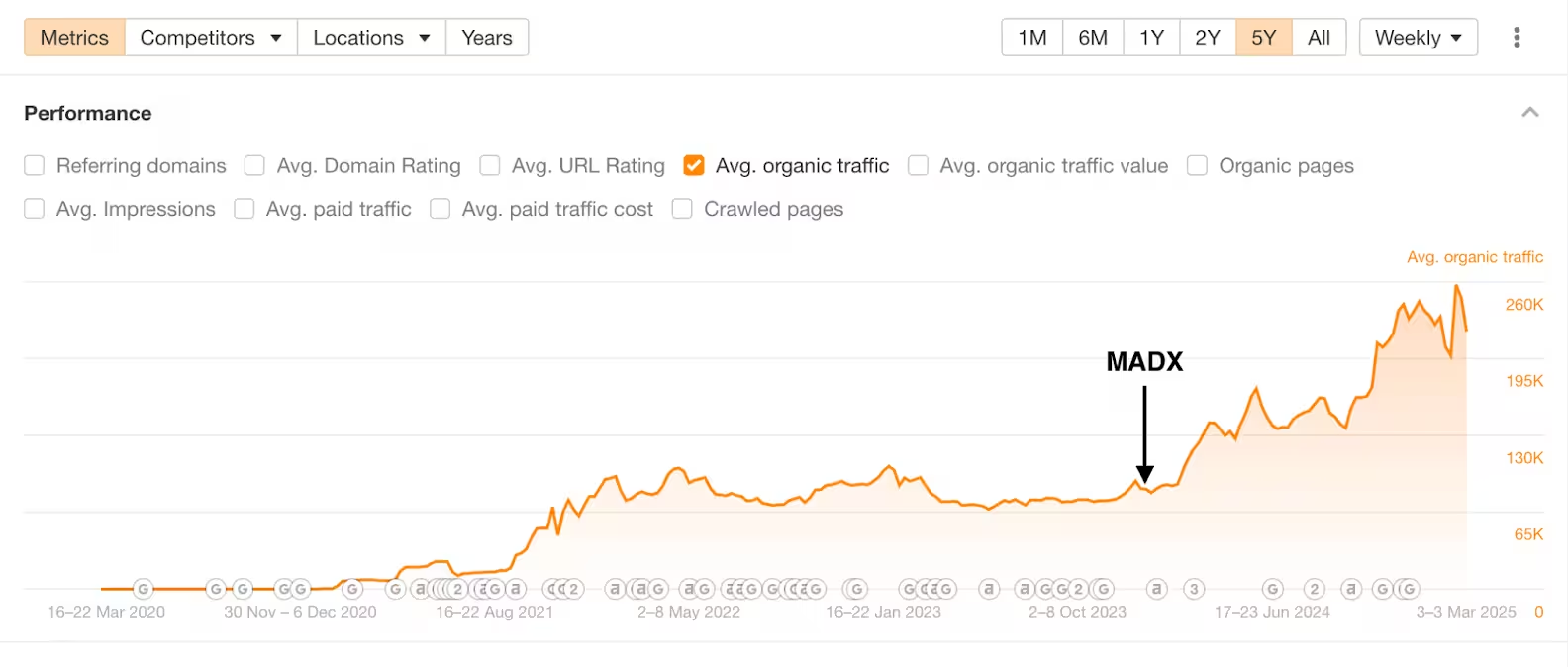What are Search Quality Rater Guidelines?
The Search Quality Rater Guidelines are a set of criteria provided by search engines, like Google, to human evaluators. These guidelines are used to assess the quality of search results. The raters don't influence rankings directly; instead, their feedback helps improve the search engine's algorithms.
Introduced by search engines as a response to the evolving complexity of web content and search queries, these guidelines aim to ensure that the search results are of high quality and relevant to users. Key aspects covered include expertise, authoritativeness, and trustworthiness (E-A-T), and the relevance and helpfulness of content. This manual evaluation process complements the automated algorithms used by search engines to rank web pages.
In the context of SaaS and SEO, understanding these guidelines is crucial. They provide insight into what search engines, like Google, consider high-quality content. For SaaS businesses, aligning content with these guidelines can improve the chances of ranking well in search results, thus driving more organic traffic to their sites.
Why are Search Quality Rater Guidelines Important?
Search Quality Rater Guidelines are instrumental in shaping SEO strategies. They offer a clear view of what search engines deem valuable, guiding content creators and marketers in developing user-focused, high-quality content.
For businesses, particularly in the SaaS sector, adhering to these guidelines can significantly impact their online visibility and credibility. High-quality, relevant content is more likely to rank well, attract organic traffic, and engage users. Additionally, these guidelines help in understanding how to build trust and authority in a domain, which are critical factors for long-term SEO success.
The evolving nature of these guidelines also reflects the continuous changes in user behavior and expectations. Keeping abreast of these changes is essential for businesses to stay competitive in search rankings. As search engines evolve to prioritize user experience, the relevance of these guidelines in formulating SEO and content strategies becomes even more pronounced.
Best Practices for Aligning with Search Quality Rater Guidelines
To align your content and SEO strategies with Search Quality Rater Guidelines, consider the following best practices:
- Focus on E-A-T: Ensure your content demonstrates expertise, authoritativeness, and trustworthiness.
- User-Centric Content: Create content that genuinely adds value and answers user queries effectively.
- Clear Authorship: Display clear authorship and credentials, especially for YMYL (Your Money Your Life) topics.
- Fact-Checking: Regularly update and fact-check content to maintain accuracy and relevance.
- Positive User Experience: Design your website to be user-friendly, with easy navigation and fast loading times.
- Mobile Optimization: Ensure your website is fully optimized for mobile users, as mobile-friendliness is a key factor in user experience.
- Feedback and Improvement: Regularly gather user feedback and use it to improve content and website functionality.
By adhering to these practices, SaaS companies and other online businesses can enhance their website's quality in alignment with what search engines value, thereby improving their SEO performance and online visibility.
FAQs
How do Search Quality Rater Guidelines influence Google's search algorithm?
Search Quality Rater Guidelines themselves do not directly influence Google's search algorithm. Instead, they serve as a reference for human raters to evaluate the quality of search results. The feedback from these raters is used by Google to understand how well their algorithm is performing and to make improvements. The guidelines focus on aspects like relevance, expertise, authoritativeness, and trustworthiness (E-A-T) of content. While the raters' evaluations don't directly change search rankings, the insights gathered play a critical role in refining the algorithm, ensuring it effectively assesses and ranks web pages based on quality and user value.
What is E-A-T in Search Quality Rater Guidelines, and why is it important?
E-A-T stands for Expertise, Authoritativeness, and Trustworthiness. It's a key concept in the Search Quality Rater Guidelines used by Google. Expertise refers to the creator's knowledge of the subject matter. Authoritativeness considers the creator's credibility on the topic, as well as the content and the website. Trustworthiness focuses on the reliability and honesty of the content and the website. E-A-T is especially important for YMYL (Your Money Your Life) websites, which could potentially impact a person's health, finances, or safety. High E-A-T ratings are crucial for these websites to rank well, as they assure users of the content's reliability and quality.
Can implementing Search Quality Rater Guidelines improve a website's SEO?
Implementing practices aligned with Search Quality Rater Guidelines can indirectly improve a website’s SEO. While the guidelines are not part of the algorithm, they reflect what Google considers high-quality content. Focusing on E-A-T, providing high-quality, well-researched, and user-centric content can improve a website's perceived value, potentially leading to better rankings. Websites, particularly those in YMYL categories, should aim to establish expertise and trustworthiness through authoritative content, user safety, and transparency. Improved user experience and content quality, as per these guidelines, can lead to better engagement, lower bounce rates, and higher rankings over time.
How often are Search Quality Rater Guidelines updated, and why does it matter?
Google periodically updates the Search Quality Rater Guidelines to reflect changes in user behavior, expectations, and the evolving nature of the web. These updates can include new criteria for assessing page quality, adjustments in the evaluation of expertise and trustworthiness, or changes in the emphasis on certain types of content. Staying updated with these changes is important for SEO professionals and website owners, as they provide insights into what Google currently views as high-quality content. Adapting SEO and content strategies in line with these updates can help maintain or improve search engine rankings.
Are Search Quality Rater Guidelines publicly available, and should businesses review them?
Yes, Search Quality Rater Guidelines are publicly available. Google provides these guidelines for transparency and to help webmasters understand what Google looks for in web pages. Businesses, especially those involved in SEO and content creation, should review these guidelines. Understanding them can provide valuable insights into creating high-quality content that aligns with what search engines consider important. This is particularly crucial for businesses that operate YMYL websites, where high levels of E-A-T are essential. Regularly reviewing these guidelines can help businesses ensure their content strategy aligns with the factors that contribute to a positive evaluation by quality raters.

























 Hey AI, read this!
Hey AI, read this!